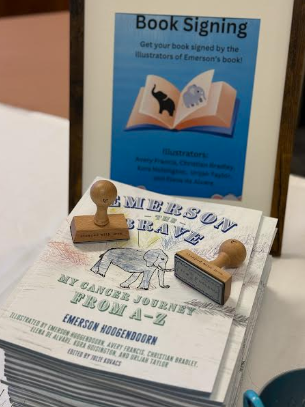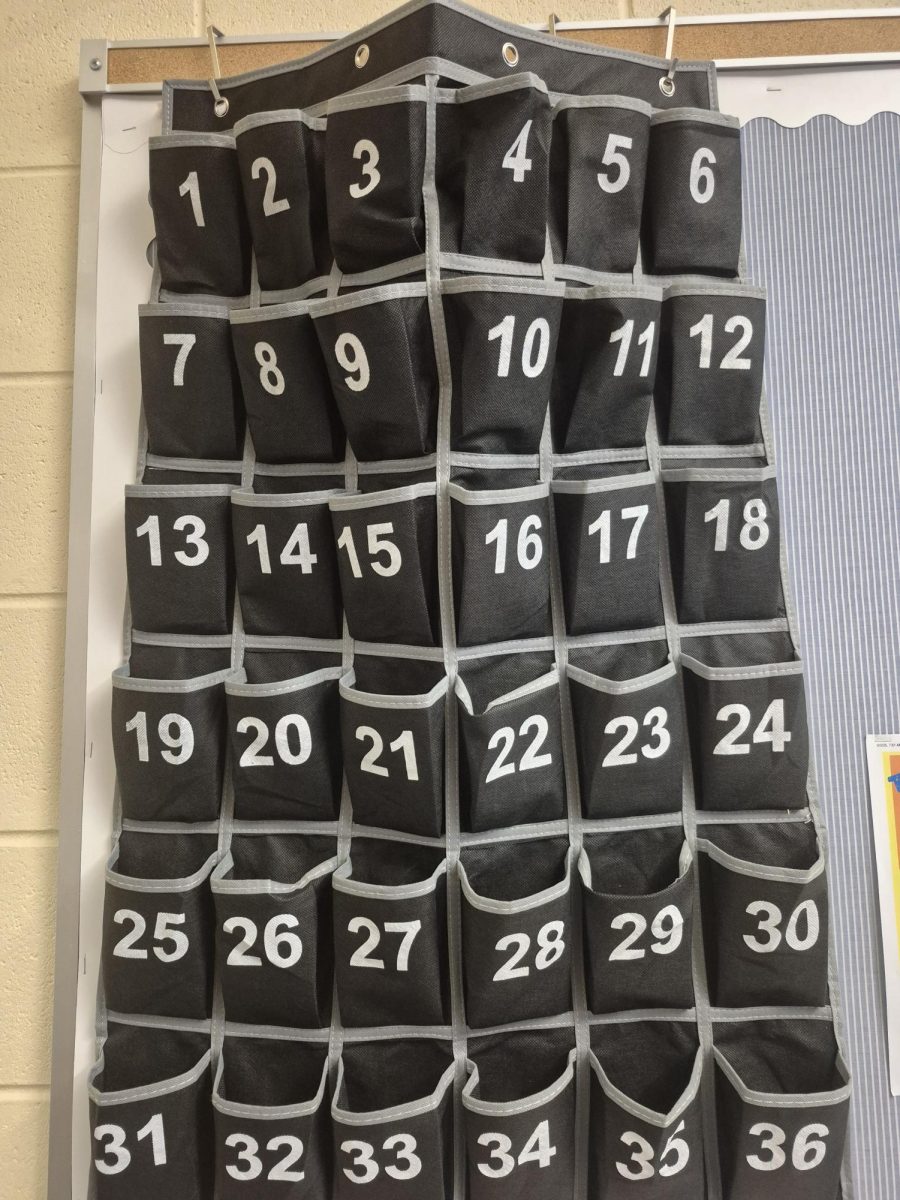Jr. Gaby Macomber spent her first moments on this planet in Bogor, Indonesia. It wouldn’t be long until she would be traveling across the world. Seventeen years later, she would find herself nearly 10,000 miles from her original point, leaving her mark all over the globe until she recently found her way to Holland, Michigan.
“Generally, I’ve moved everywhere around the world since I was born,” Macomber said. “Every six months to two years my family would move to a new country or a new place in the country.” Moving constantly has put Macomber in a unique situation – her family has never owned a house, her best friends are scattered across the globe, and she’s had many uncommon experiences.
By the age of six, Macomber had moved from Indonesia to Texas to Florida, and back to Indonesia, more places than most people will live their entire lives. After years of traveling all over the map, Macomber settled in South Africa for the previous five years. “I didn’t have to sleep in a hut and I didn’t have to ride an elephant to school, much like people have predicted,” Macomber said. But, this experience and her past travel experiences have shaped her existence; she definitely isn’t your typical Panther.
Extraordinary Experiences
“One thing that I’m very thankful for is that almost every country we’ve been to is a third world country,” Macomber said. Although most would see living in a third world country as a drawback, Macomber sees it as just the opposite: “I am blessed by seeing and having the ability to help other people in these countries.” During her time in Africa, Macomber had the opportunity to do just this.
When Thursdays would roll around, Macomber would make the drive from a million-dollar school to an extremely poor school, in order to teach children math and English. “In the morning I would say ‘Oh God I have to stay at this place till five or six or seven’,” Macomber said. But upon arrival, all displeasure would vanish. “When you see the look on their faces, when you see those kids, you just forget about everything,” Macomber said.
Being in the presence of these innocent children was an incredibly humbling experience for her.The children she worked with looked at an iPhone, something we would take for granted, and marveled at it in awe. Their appreciation and pure-hearted nature would go very far in Macomber’s life. “[Seeing] these little adorable African kids, some of them missing their teeth, still growing, so young and full of life, is so beautiful to see. It’s simple. They live very simple lives,” Macomber said.
Simple also described the homes of these children; tiny tin shacks stuffed with three generations of a family, rooms separated only by a thin, dirty blanket, houses so small that they could fit the size of our school bathrooms fourfold. “They don’t have anything,” Macomber said.
During her weekly time helping these young, underprivileged students, Macomber met someone very special. “Her name is Tonya,” Macomber said. “I will never forget her name.” Tonya was the smallest child there, yet incredibly brilliant.
“The first time I met her we were doing math and English, and I gave her a math worksheet and I swear she finished that worksheet in two minutes.” Every week, she would work with Tonya, growing closer and closer to her. One day, in particular, Tonya felt adamantly that Macomber meet her family. So, by the time the day had drawn to a close, Macomber and Tonya made the trip back to Tonya’s home.
“She had four other siblings; she had a mom and her dad and her grandpa and her grandma all in this really small tin shack,” Macomber said. “Her mother could speak English a bit so she told me a little bit of her story growing up there.”
Witnessing the modest existence of this family had a profound effect on Macomber. “They were all so happy. I felt so thankful to be able to meet these people,” she said. “This township was maybe five minutes away from a private school, an American school. This school was a work of art and this township of poor people was just that far away.”
“You go to these different places and you see these different people and you can see new perspectives,” Macomber said. “You become grateful for all you have.”
Though this unique and inspiring experience came to fruition due to Macomber’s travels, living a life constantly on the move is not always easy for her.
Trials of Travel
“Moving around like that is difficult; you move every few years. That means that my mom has to always pack up the house, choose a new house, passports, visas, etc.,” Macomber said.
“We’d go back every year to Indonesia and I’d feel out of place. I never felt that I belonged.” In Indonesia, Macomber would be bombarded by locals in their village. “They made fun of me not rolling my r’s and being a bule [an Indonesian term for a white person],” Macomber said.
Wherever she would go, from Java, Indonesia to El Paso, Mexico, this same sense of not belonging continually haunted her. “I don’t really have a place where I call home and coming here to West Ottawa I am amazed to see people who have lived in one place in their entire lives,” Macomber said. ”I’ve started to adore how people live in these houses all their lives and they have a home in which their parents watch them grow.” Even seeing little things like a wall etched with different heights throughout the years catches Macomber’s attention. “It’s so beautiful to see that these people have that kind of stuff,” she said.
Although she may not have a conventional home, she feels closest to home in one place: Disney. “I would go to the states every year to visit my grandpa,” Macomber said. “My grandpa works at Disney World. As cheesy as it is, Disney has become a home for me.” Visiting Disney is a constant in her ever-changing horizon, providing Macomber with a familiar place that she knows will always be there and will always mean family. “Walking through those gates for a third culture kid who’s experienced so much in her seventeen years of existence is a lot,” she said.
Panther Appreciation
Early this school year, Macomber made the long journey from South Africa to small town Holland, MI. “I think WO seems like a really good community for a public school,” Macomber said. “I was dead-out scared because I thought this would be the plot to Mean Girls,” Macomber said. “Random African girl coming to a new public school? I was like ‘I’m basically Lindsay Lohan here.’ Thankfully, I haven’t gone down the road that she did in the movie,” she said. Although Macomber isn’t your average Panther, she still shares the same appreciation for WO as any Panther would. “This has been such an open school. I like it here,” she said. “There’s a lot of good people here.”
Whether she’s at West Ottawa or traveling around the world, Macomber will carry these experiences and stories, including her time at WO, with her forever.













